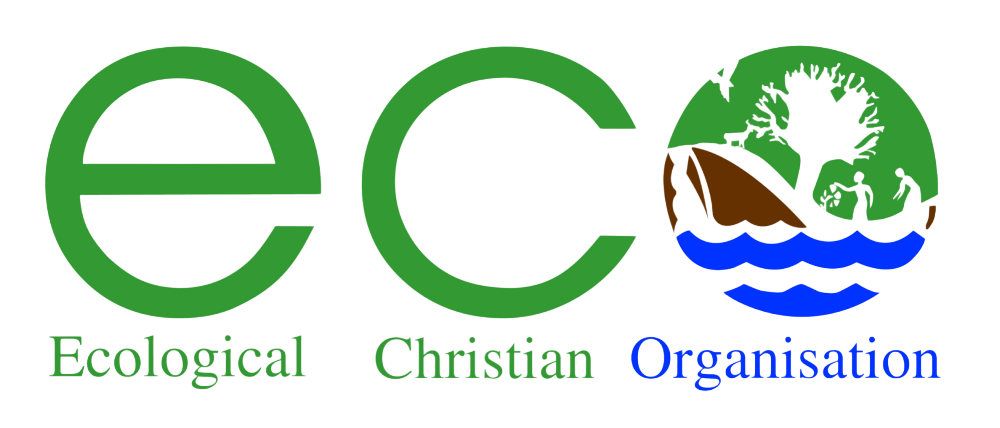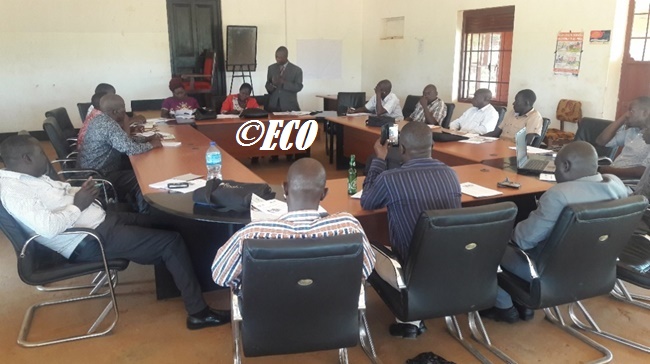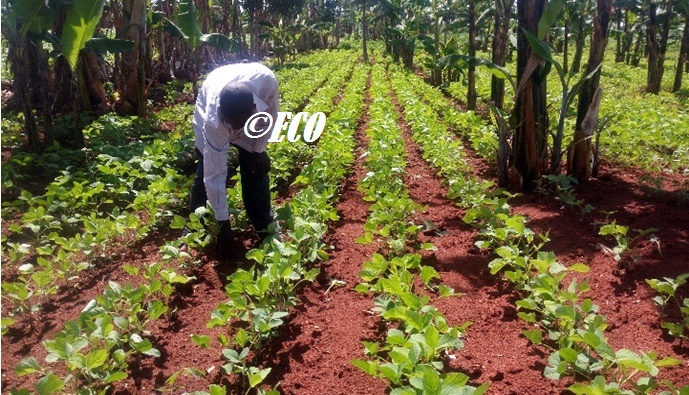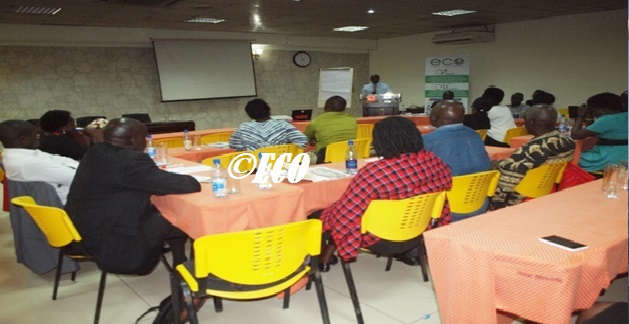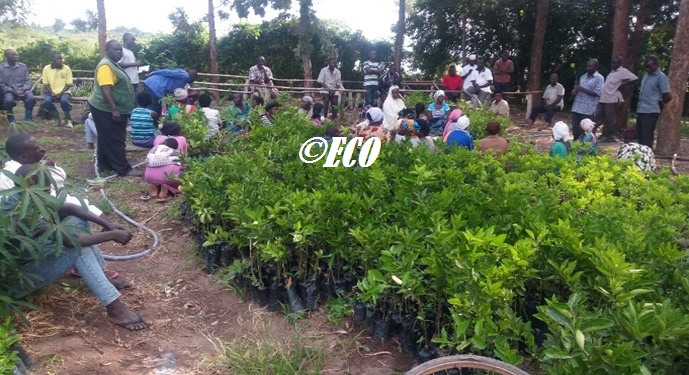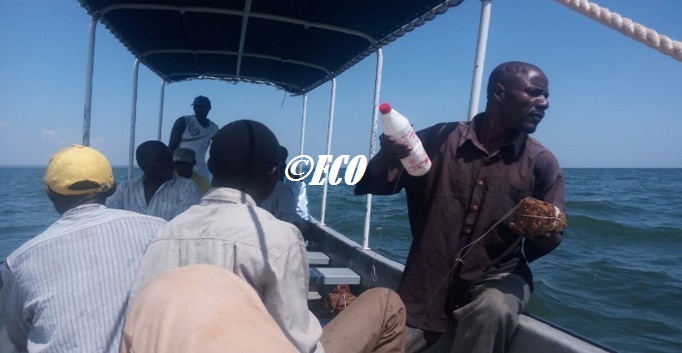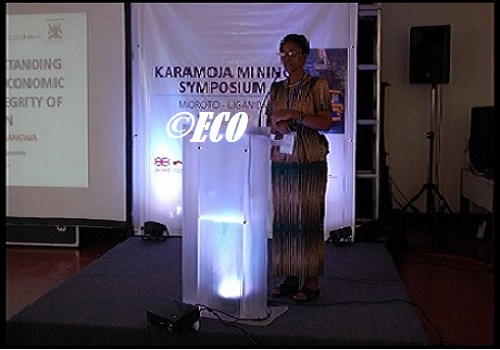Conducted planning meetings with Mayuge DLG to share ideas and information on Promoting Natural Resource Management in the district
Conducted planning meetings with Mayuge DLG to share ideas and information on Promoting Natural Resource Management in the district
20 District Head of Departments were engaged in Mayuge to introduce the project of PNRM4SL that is aimed at promoting sustainable livelihoods in the Lake Victoria areas of Mayuge .A base line survey was also conducted to find out the state of the communities in regard to natural resource management and governance at the community and local government level. The base line targeted to establish issues affecting the local communities in fisheries, agriculture, commerce, existing Natural Resources governance laws and strategies, frame works, law and by laws guiding the exploitation natural resources in the basin.
Conducted community awareness sessions sustainable mining, fisheries, agriculture, land use, agro forestry and biodiversity conservation.
Communities in the11 landing sites of nduwa,bwagu, Walujo, Nairobi, Bwondha, kafu, kampala, bwembe ,masaka, Kampala, Namadhi were sensitized on sustainable fisheries and argued to adopt the use of recommended fishing gears, identification and demarcation of fish breeding sites, surrendering and burning of illegal fishing gears
Supported the establishment of 265 model Households in PNRM4SL in Lake Victoria basin
In the last quarter 265 households were established in the basin. A model household is a centre for implementation of PNRM4SL. A model house hold practice positive behaviour in sustainable agricultural and sustainable fisheries, have sanitation facilities like latrines, dish rack, energy saving stove. Model households also train other new households to practice these practices
Promoted organic farming and agro-forestry extension methods for food and cash crops for 1000 households.
Efforts to promote organic farming and agroforestry extension methods for food and cash crop were promoted through planting agroforestry focusing on planting trees and fruit trees among the model house holds in Mayuge.11000 bathedavia tree and 6000 pawpaws seedligs were distributed .On the other hand 35 model households were trained in soya bean production and supported with soya bean seeds as a means to diversify their livelihood, improve their nutritional standard. Soya bean is one of the cheapest sources of proteins and improves soil fertility through its special properties of releasing nitrogen .Soya bean has ready market at both local and international market, drought tolerance , short gestation period which adequately make it suitable for the present unreliable rain fall partners. The crop can be locally processed into bread, confectionery, milk and soya meat which in turn will increase employment opportunities in the community.
One of the farmers that benefited from the soyabean distribution tending to his garden
Shaping Karamojas mining future: The Karamoja mining symposium
In preparation of the Karamoja Mining Symposium, Ecological Christian organization (ECO) in partnership with the Ministry of Energy and Mineral Development, GIZ, Montrose International, Uganda Chamber of Mines and Petroleum organized a joint pre-consultation meeting for national and Karamoja CSOs was held in Kampala on 21st March 2017 at Africana Hotel in Kampala.
20 CSOs including Transparency international, safer world, Global rights Alert, Karamoja Development Forum, GIZ peace service among other positively engaged by sharing CSO perspectives/concerns regarding the sector opportunities, investment, legislations, land and environmental concerns, sustainability and inclusiveness among others . This joint meeting was attended by over 20 CSO representatives from CSO organizations working on mining issues at the local and national level s
Pertinent issues that stood out were the delay in the amendment of the current mining policy 2001 and the mining act 2003, the lack of regulations and government focused development programs for the ASM sector, lack of a local content policy, inadequate collaboration and coordination mechanisms within CSOs, CSO enabling space and inadequate financing and lack of a framework for engaging the private sector. To this effect the CSOs made recommendations to these issues directed to the government, CSOs, development partners and private companies
Ultimately the pre-consultation meeting generated a CSO position titled “Working together to build a responsible, inclusive and sustainable mining sector in Karamoja”
A cross section of CSO participants participating in the CSO pre consultation meeting in preparation of the Karamoja Mining Symposium at hotel Africana
The CSO position paper was produced and availed to different stakeholders at the Karamoja Mining Symposium. A presentation on perspectives from the Civil Society embodying this CSO position paper was later made by ECO on behalf of CSOs at the Karamoja Mining Symposium.
Facilitated the training of 40 model households in the construction of 245 energy saving stoves
In the bid to reduce the rate at which trees are cut in the basin for fuel wood, the project is worked with model house hold to reduce the consumption of fire wood by constructing fuel efficient stoves ( energy saving stoves ). This technology is believed to save 6 times the fire wood used than the tradition three cooking stoves and reduce accidents that may result during the process of cooking, smoke free which to an extent limit on the incidents of respiratory diseases often contracted during the process of cooking, cooks fast as opposed to the traditional 3 cooking stones and remains warm for a longer period of time. This technology was to be popularized in the community according to the project design through training energy saving stove construction artisans who will further construct for households in the entire community as well as training others which will in turn impact on less fire wood usage during cooking and directly translates to a reduced rate at which trees are cut hence contributing to environmental conservation.
Facilitated the development of 3 community tree nursery and planting of 200,000 trees.
A community managed tree nursery at Bwondha,Mayuge district
Tree planting contribute towards natural resources management and sustainable livelihoods to the people living around the lake victoria basin.These tree nurseries will produce trees and fruit trees for re afforestaion, food, income and sources of livelihoods. Bwondha community nursery that consists of 124 community members was identified and supported with materials , inputs and skills in nursery operation. These were trained in nursery establishent and management, fruit tree grafting and budding , pest and disease control
The trees being promoted are only those which have postive contributions to the environment eg fruit trees, agroforestry trees (these are trees which can be grown together with crops and has properties of contrubuting to soil fertility, early maturing and at the same time can act as fodder fo livestock). These trees include bathedavia, albezia, gravelia, sasebania, caliandra, meosopsis emini etc.
Promoted sustainable fishing through demarcation of fish breeding zones is of the sustainable fishing practices
This was carried out this quarter consquently demarcating 11 fish breeding zones of Nduwa, Bwagu, Nairobi, Walujjo, Bwondha east , Bwondha West, kafu, Kafu, Kampala, Bwembe, Masaka and Namadhi .A fish breeding zone is an area on the lake identified and proven by the fishermen to be an area where fish breed to produce young ones (fingerlings)this area is the demarcated as a no fishing zones with a view of creating condusive condition for fish to met and breed.Fishing activities are allowed 100 meters away from the demarcation line. Local bylaws were put in place to protect this area .This increased fish catch thus improving peoples livelihoods living around the lake victoria basin..
BMUs in Malongo,Mayuge district demarcating the fish breeding sites
The Executive Director, Ecological Christian Organization presenting perspectives from CSOs generated from the pre consultation meeting at the symposium
ECO took the role of identifying best practice examples within the East Africa region for presentation at the Karamoja Mining Symposium. The presentation of best practice examples was to provide lessons for the emerging mining sector in Karamoja to adopt in the development of the mineral sector.
The best practice examples were delivered by Donald Kasongi Executive Director Governance Links Tanzania and Grace Massalakulangwa national coordinator of the Interfaith Standing Committee on Economic Justice and Integrity of Creation from Tanzania
Grace Massalakulangwa a presenting the best practice examples from Tanzania at the Karamoja Mining Symposium
